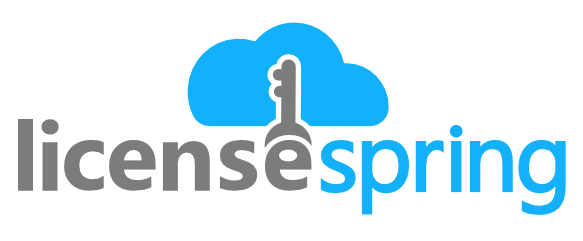Announcement: Floating License Cloud now Available on LicenseSpring
June 17, 2020We are proud to release our latest license type that allows Software Vendors to configure concurrent usage of their applications to their end users, without having to set up a floating license server on the premises of each customer. Publishers now have the capability to:
- Configure how many devices can activate using the same license
- Set how many devices can run the application at the same time.
- Set the timeout period for license allocation checks.
Starting from v6.0.0, our C++ which has been published in our documentation earlier this month, the client SDK can be configured to “check-out” a license from the server, and periodically ping the LicenseSpring server to indicate that license is still in use. If the application returns the license or times-out (for example if the application crashes or the device is switched off), then the license is released and can be used by another device. The admin also has the ability to release licenses, and blacklist devices altogether.
We will be implementing similar capability in our client .NET and Java APIs in the upcoming weeks.
Why should my software company issue floating licenses?
A large portion of enterprise software is licensed based on a concurrent model because it is usually much cheaper for the client compared to a site-license or a perpetual license for every end user in an organization. Instead, the client agrees to limit the number of instances of the application that can run at the same time, rather than the number of devices that are allowed to install the application.
Additionally, software that cannot be node-locked typically needs to register / release a license from a server in order to operate. This is common for Virtual Machines, which would create the same device fingerprint.
Why implement floating license in the cloud instead of a server on premises?
In many situations, it is simply not possible to use a cloud solution to offer concurrent licensing for your software. This is often due to a security measures in place at the end user’s site, where the devices running the software are behind a firewall and cannot connect to a license server that is not on the private network. However, if there is no such security constraint regarding the functionality of the license server, a cloud solution can be very appealing for a few reasons:
- A floating license cloud is faster and easier to implement: Instead of having to configure a separate license server for each client, and test whether the client applications are correctly retrieving usage entitlements, the activation and usage for a cloud floating license is almost as simple as configuring a regular perpetual license.
- It is simpler and usually cheaper for software vendors to maintain: As a software vendor, the fact that you don’t need to configure a license server on premise for each client translates to lower operating costs.
Download the latest C++ SDK for LicenseSpring here
Instructions on implementing and issuing Cloud Floating Licenses for your application can be found in our documentation
For more information as well as a live demo, please fill out our contact form
